Jessy Terrero has seen and done a lot in over 20 years in the entertainment industry – initially breaking into movies through production and acting, then making his fame as a music video director of the biggest artists in hip-hop and Latin music and finally launching his own production company Cinema Giants which created the hit Netflix series Nicky Jam: El Ganador, based on the singer’s life, among other high-profile projects. Jessy recently sat down with Inteligencia to discuss his artistic evolution, Reggaeton’s jump to the mainstream, and Latino underrepresentation in Hollywood.
INTELIGENCIA: “As the owner of Cinema Giants, you have to juggle the creative and business sides. What do you enjoy the most and the least about balancing both sides?”
Jessy: “As a filmmaker you want the best project possible but other people control the finances and production, so you end up with the short end of the stick. One of the reasons I started my own production company was to be able to see my vision fully to the end. When you get a job with a studio, they’ll have a meeting with you and say “We love your style, we love everything about you, you’re the right guy for this project,” and then when they get ready to go into production say “Oh you can’t hire anyone you’ve ever worked with, you have to hire our cinematographer, our producer, our production assistant.” The synergy then doesn’t work even though the studio expects you all to be best friends and the creative to flow. Being a business owner and producing my own jobs gives me a lot more creative freedom and means if I pitch something I can deliver.
What’s stressful is sometimes the creative and business sides conflict. If I’m totally driven by being creative, I’m not a good businessman because I might overspend on the production budget. But for me, visuals live forever, and I don’t want to be sitting somewhere watching a video I did and remember that there was a moment I could have fixed or done better and didn’t because of budget and now have to live with the fact that I know this isn’t my best work. The conflict is really tough.”
“We try to create content where there’s a void, for the voices that are not being heard.” says Jessy Terrero, Founder and Creative Director of Cinema Giants.
“The first film I ever stepped foot on was Juice, the films I was exposed to in terms of production in New York were films like Malcolm X, and others where I saw the emergence of Black cinema. Being Latino and seeing the rise of Latin music and the explosion of Latino culture I always felt there weren’t too many things that mirrored how we felt in America and what was happening in our music and pop culture. Everything that we do as Cinema Giants, the majority of it is Latino facing, and we try to create content where there’s a void, for the voices that are not being heard.”
“Given the range of projects you’re involved in, what does an average week look like for you?”
“Lots of reading, lots of creative meetings around projects we’re trying to move forward. [Before Covid] there were a lot of face-to-face meetings, but now it’s just a lot of phone calls and Zoom and Google video meetings.”
“How do you maintain energy and drive creative ideas on video calls without the human element?”
“When I’m talking to my internal team, we’re used to each other, so that’s a little bit smoother. In bigger meetings with other people it’s tough, especially if you can see people. Some people are on their headphones, or drinking coffee, some texting while you’re talking, and you can see all the distractions so you’re wondering how much they’re paying attention to you. People that do too many video calls forget you’re looking at them, and all of a sudden you ask them something and they look up with that face like they haven’t been paying attention.”
“You’ve worked extensively with certain artists. Is there a particular artist that brings out the best in your work?”
“Wisin & Yandel, Maluma, we have a synergy. Jennifer Lopez, Enrique Iglesias, artists like that, they’re professionals and they push, push, push to get you to do your best work. When I work with Jennifer, she doesn’t settle, and I love the challenge.”
“How has your directing style evolved over your career?”
“Creatively I’ve always been known for my narrative work. I studied theater wanting to be an actor and started in the film business as a filmmaker, so I was heading toward film. Then music videos sort of happened, but I adapted my film style to them, and my biggest videos and best work has always been narrative drive. The things that have stood out, there’s been stuff that’s a little more cinematic than what other people were doing.
I came in with a different sensibility, trying to push the Latino visual to a different level. I feel like I inspired many directors that were coming up behind me, and I think a lot of younger Latino directors would say I influenced them. But with influence comes imitation, so you have to continue to evolve. I continue to find ways to stay fresh because you can’t keep doing the same thing.
I was telling Maluma the other day as we were shooting a music video with him and Jennifer Lopez that even with him I have to look at every shot to see how I’m lighting and framing him because I’ve shot so many videos with him that I don’t ever want him sitting at home watching all the videos together and feeling that they’re repetitive. It’s constantly having to create a different way to approach a scene so that the artist can feel like I’m doing something different every time, it’s not the same standard close-up or whatever.”
“What drove you to focus on the urban Latino world and Reggaeton in your projects?”
“With hip-hop, movies came out that mirrored the music as the music got big. Boyz in the Hood, Menace 2 Society, Juice, you had a series of movies that really touched the culture. My focus is creating those stories for Latinos and putting them to the mainstream.
I’ve been in the business and content side of Latin culture for the last 15 years and was part of connecting hip-hop artists with reggaeton artists, like 50 Cent with Wisin & Yandel. As I toured the globe with the Latin artists, I was like “Wow, they’re selling out arenas, that’s insane because hip hop artists aren’t doing that.” I always saw what we see now.
Why Reggaeton is so important to me is that it’s the first time the music has unified all Latinos. The same music is number one in all countries, Reggaeton is leading across Latin America. That’s why I’ve been pushing the agenda of the Reggaeton movement, capturing the urban culture, and telling the stories because I feel like the answer is not with the old regime who didn’t want to let the Reggaeton through, the answer is with the new regime. I’m going to the kids and trying to make content for them that mirrors the music they love.”
“A lot of the Reggaeton artists you’ve worked with have been at the forefront of taking the genre mainstream worldwide. Why do you there has been this big jump in the last few years?”
“Because it got out of the hands of the people who controlled media and into the hands of the kids. The thing is, for a long time television and media were controlled by let’s say 10 powers that be. Reggaeton had that explosion with Daddy Yankee and [his hit single] Gasolina and then all of a sudden, those powers decided to say reggaeton was over – but they never told the reggaeton artists that.
Reggaeton just kept getting bigger and bigger and finally the playing field changed when Youtube, Spotify, and all the streaming platforms came in. Also, Latinos overindex on smart phones, so could access the music on their phones. Now, as much as people wanted to put a lid on Reggaeton they couldn’t stop it, the numbers were there. Youtube was like, “Oh wow 8 of the top 10 videos this year were all reggaeton;” Spotify and all these companies were now getting data and going “Wow, Latin music is overindexing.”
When you talk about culture shifts and control, most Latin countries also took a long time to accept reggaeton. Reggaeton was always looked at as an urban ghetto thing, the same way when hip-hop started moving into the US suburbs no one wanted to believe it was going to take over, and no one wanted their kids to listen. In Argentina, Mexico, etc. the wealthy population did not want reggaeton to come in. but they couldn’t stop it because the youth were driving pop culture and ultimately the Nicky Jams, Daddy Yankees, Wisin & Yandels became the pop stars.”
“In [Cinema Giants’ Netflix series] Nicky Jam: El Ganador you used a lot of Reggaeton artists as actors. How did you find that?”
“I always say I want to be the bridge, like what John Singleton did for a lot of urban artists turned actors in his movies like Tyrese, Ludacris, and Ice Cube. Because I come from the music video space, I’m not afraid to work with them in terms of getting them where they need to be. I’ve worked with a lot of artists, I know the vibe and attitude. I see what’s special about the reggaeton artists and I’m not afraid to coach them through the process. These artists are used to being in front of the camera every day, so they just need a little bit of help. A lot of the times, you’re casting them to play someone similar to themselves. Once they land and the comfort is there it’s like picking up the mic and going to the studio.”
“I’m sure you heard John Leguizamo’s recent comments about lack of Latino representation in film and TV. Do you feel there’s a lack of representation and what do you think needs to happen to boost Latino visibility?”
“I think currently you have Latino characters in a lot of shows but no shows starring Latino casts, it’s nonexistent. Latino are not loud enough in Hollywood, because we’re so fragmented. We have the Mexicans over here, the Argentineans, the Caribbeans all spread out. Then you have color dividing us – we’re not able to stand as a unified front. Africans Americans are vocal and saying, “We need this, we’re demanding this,” and change has happened. As much as Hollywood sees [the Latino culture] and knows there’s a demand, the only thing that’s forcing the powers that be to change is the numbers.”
“Where is the disconnect then? If the numbers are there, why aren’t the studios reacting?”
“A lot of the studios don’t have the right team to understand the culture properly. When you bring them something urban like Nicky Jam, they get scared. They’ll come up with excuses like “Mexicans won’t like it,” without understanding Mexico is one of the biggest consumers of Reggaeton. Then they make projects they think Latinos will like that are usually not made by Latinos that don’t have the right cultural sensibilities and when those projects fail, they shut the door on any other projects. One Latino movie comes out and does badly and all other Latino films are shelved.”
“Have you seen any meaningful changes from the movie studies in light of their diversification pledges coming out of the BLM protests?”
“I think there are definitely more executives at the big studios who understand the culture and are working to buy the content. They’re making it part of their agenda, taking the meetings and signing development deals, but are these projects actually getting made? That’s not happening, not yet. There are no projects out there with a full Latino cast. I’m sure every company has it on their agenda to do something Latino, but to buy a project and put in on the air or let it stream is two different things.”
How do you think new technologies and changing media consumption of the younger generation has changed your creative approach?”
“For me, I’ve been focused on making good films and TV, because if you look at the success of Netflix, Amazon, Apple, etc people are still consuming high quality content. With younger audiences, I take it into consideration editing style and “eye candy.” The new audiences’ attentions spans are short, and when they’re watching on their phones there so many distractions that I have to constantly be giving them something to stay awake. When we’re screening films on different platforms, we’re ensuring that we’re not giving anyone the opportunity to look down at their phones.”
“What’s next for you? Anything new you want to try?”
I just want to keep producting and doing the things I love. I have a new show coming out that takes place in the world of urban music, similar to El Ganador but all female characters. It’s a female point of view that I think has been missing in Reggaeton”
“What advice would you give young Latino creatives trying to break into the industry?”
Work hard! There’s a lot of entitlement in this new generation and the kids feel like they’re celebrities overnight and they have to understand that to have a long career they need to lay the groundwork properly. It’s like building a house – if you don’t lay the bricks, when the storm comes the house will fall down. A lot of kids, I’ve seen their careers vanish because they’re not building the foundations.
Words by Ben Sanders
To Read More INTELIGENCIA stories like this one, go here.

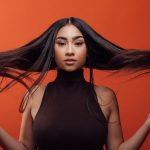










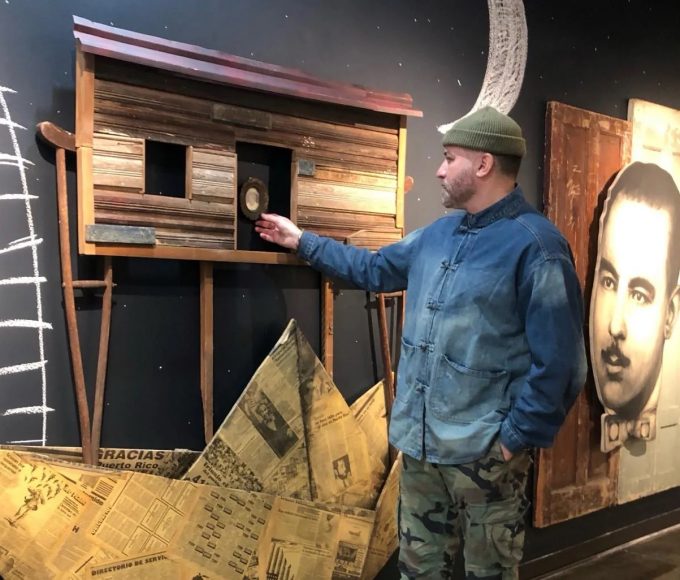
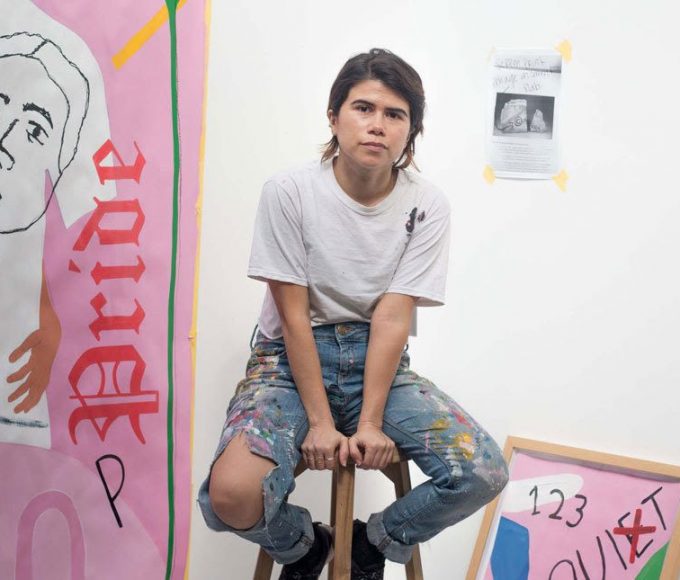
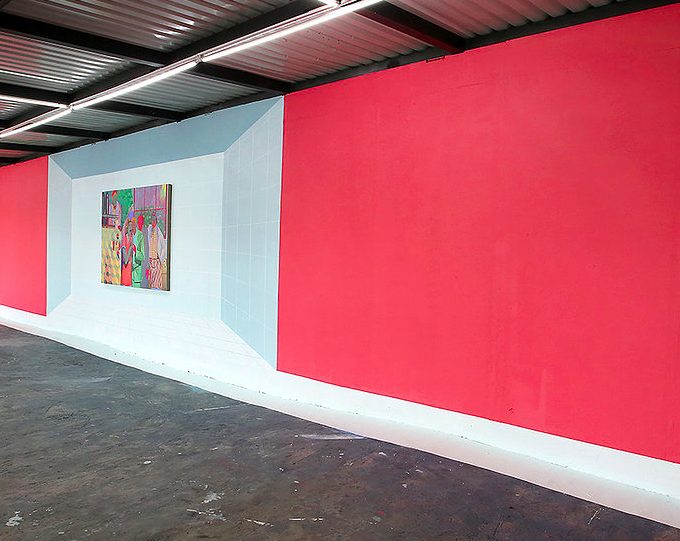
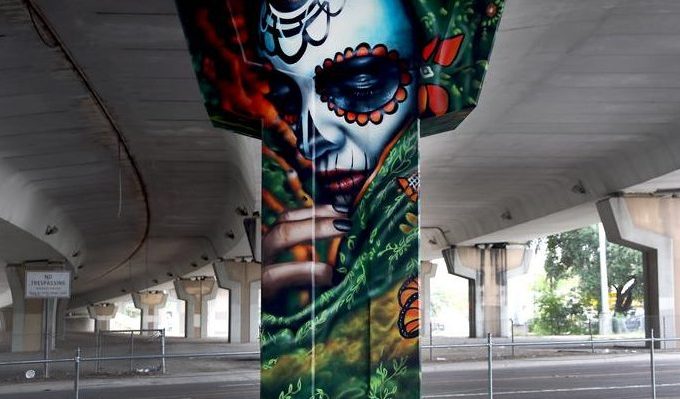

Leave a comment